Can we reduce fruit drop? YES!
What has been done so far…
- Collected and analyzed 1,450+ samples
- 95%+ tested positive for Colletotrichum gloeosporioides
- Signed contract with University of Turin to help identify solution
- First 3 boxes of samples have been sent to Dr. Vladimiro Guarnaccia to be analyzed
- Isolated Colletotrichum gloeosporioides and Glomerella cingulata in petal during bloom
- Outlined life cycle of pathogen
- Reviewed various fungicide applications & tested effectiveness in vitro
- Identified 9 blocks/groves to date that have had low fruit drop
What have we discovered?
Life Cycle of the Pathogen
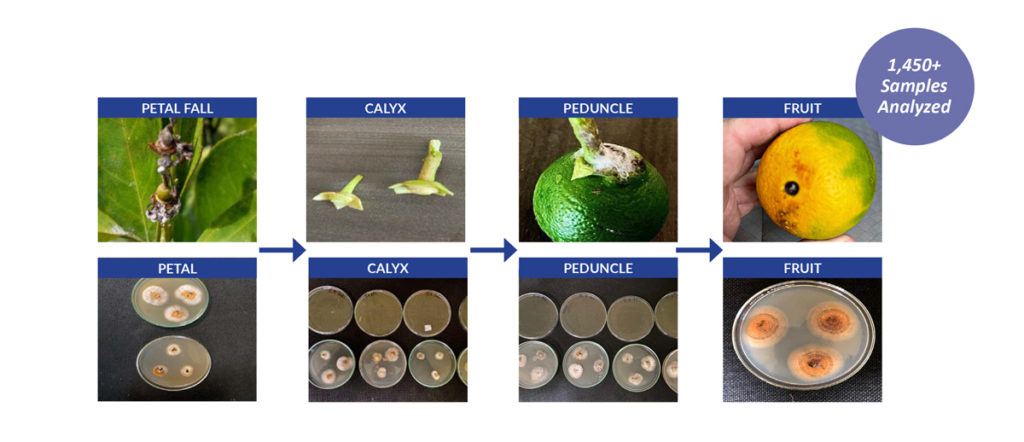
Sample tested positive for both Colletotrichum gloeosporioides and Glomerella cingulata.
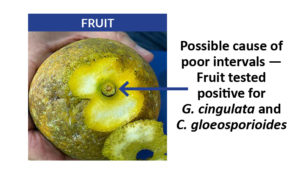
C. gloeosporioides and G. cingulata has been isolated from the petals, calyx, peduncle, and fruit top central core. In sufficient quantities, it cloges the vascular system of the peduncle, interrupting the flow of carbohydrates into the fruit. This causes a reduction in fruit quality.
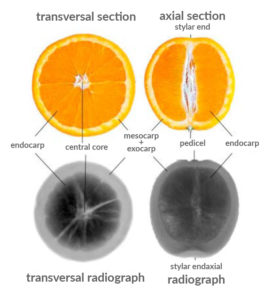
It Is Never Too Late to Start!
Nine blocks have tried one or more of the following spray programs in the 2021-2022 season after learning about C. gloeosporioides and G. cingulata.
Fruit drop was reduced in all nine blocks. Because C. gloeosporioides and G. cingulata infect all phases from bloom to fruit, it is not too late to begin a spray program to help reduce fruit drop.
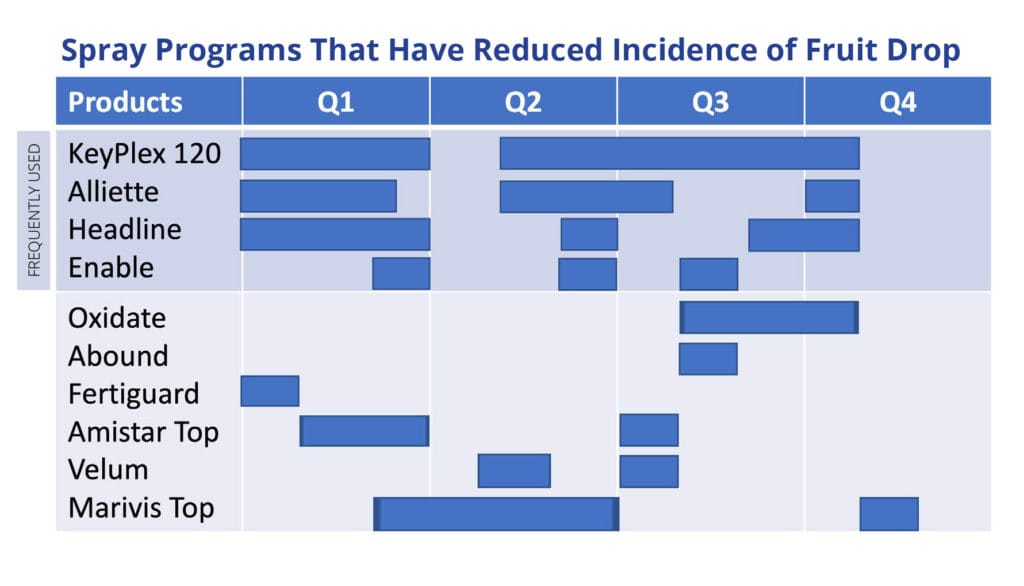
Key Takeaways
- Reducing inoculum is key – it’s never too late to start – it will take a season. Our research to date has shown it works
- The discovery of C. acutatum (PFD), C. Gloeosporioides and G. cingulata at bloom time on the petals would indicate that application during this time is critical
- Internal In vitro studies and field applications have shown KP 120 (16 – 32 fl. oz. per application) and various fungicides together increase efficacy and reduces inoculum
- Identifying a consistent program will help in managing operations. KeyPlex is endeavoring its research with the University of Turin to provide an outline program
- Increasing fruit quality is possible when the inoculum is reduced and carbohydrates can freely enter the fruit
- Maintaining a good fertilizer and IPM program is essential
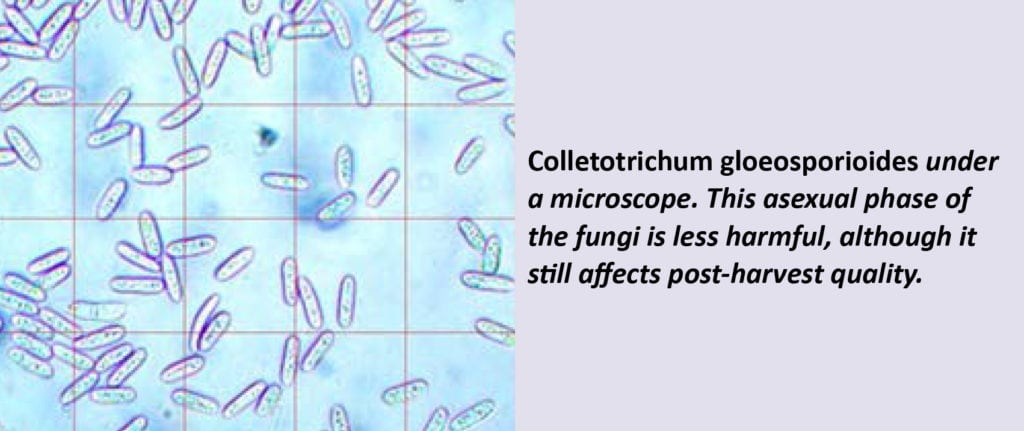
Find out how KeyPlex can help. Contact your local KeyPlex sales representative or visit KeyPlex.com for more information.
